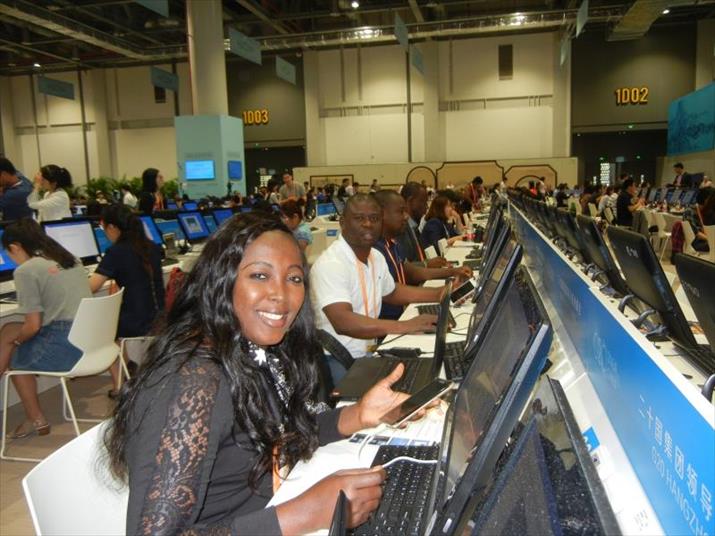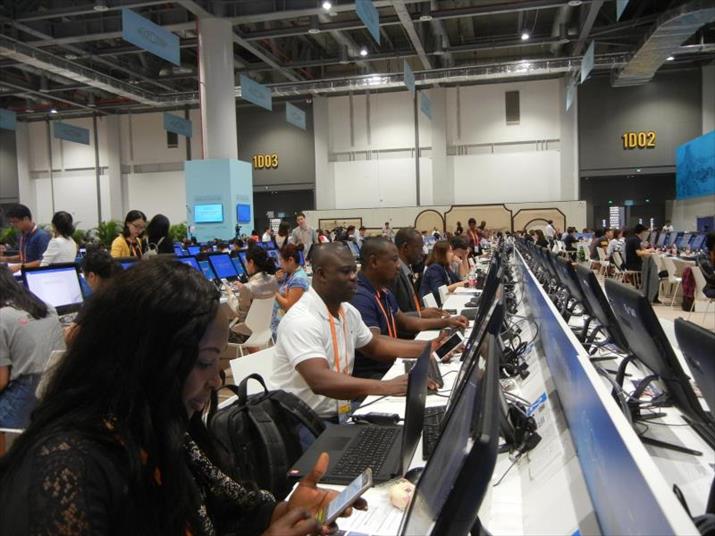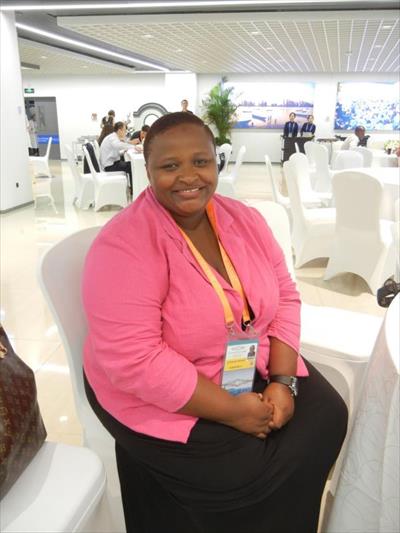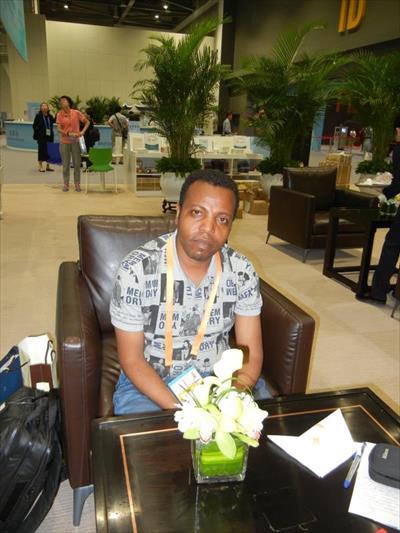|
||||||||||
| Home Nation World Business Opinion Lifestyle ChinAfrica Multimedia Columnists Documents Special Reports |
|
||||||||||
| Home Nation World Business Opinion Lifestyle ChinAfrica Multimedia Columnists Documents Special Reports |
| Africa |
| Rise of the African Voice |
| G20 Summit's inclusive policy agenda gives African countries hope |
| By Casimir Djezou Kouadio | VOL. 8 October 2016 ·2016-09-27 |

Caroline Mwangi from Kenya's K24 TV has a homely yet apposite way to describe the G20 Summit held in the Chinese city of Hangzhou last month: "When the G20 sneezes, developing nations catch a cold. So what they do ends up affecting us." Though the summit lasted only two days, the policies and projects agreed upon by the bloc of 19 member countries and the EU are going to affect the entire world, including Africa. In the past summits, there was little African participation in the discussions, South Africa being the only African member in the group. But this time, with a noticeable effort by summit host China to include other developing economies, there was a visible African presence.
Tangible presence
Even the communique issued after the summit had specific references to Africa. "We also support industrialization in developing countries, especially those in Africa and least developed countries (LDCs)," it said, announcing the launch of the G20 Initiative on Supporting Industrialization in Africa and LDCs.

The G20 leaders also said they will work with Sub-Saharan and Asia-Pacific countries to improve universal access to affordable, reliable, clean and sustainable energy services. "Our growth, to be strong, sustainable and balanced, must also be inclusive," the communique added. "We are committed to ensuring the benefits of our growth reach all people and maximize the growth potential of developing and low-income countries."
It was underscored by Chinese President Xi Jinping, who said in his press conference after the summit that the "G20 belongs not only to its members but the whole world."
The African perspective
All this has been heartening for Africa, which heard about the decisions concerning it from the African media. A group of 28 African journalists from 27 African countries went to Hangzhou to cover the summit from the African perspective. They were hosted by the China Public Diplomacy Association, a Beijing-based non-profit organization. For most of them, it was their first opportunity to cover such a major international event. "It was a wonderful experience," said Obambe Gaston from Radio Congo, the state-run radio of the Republic of the Congo. "It provided me with invaluable experience. Now I know how such summits work and will be able to prepare for future major events in a much better way."

From the African perspective, the G20's promise to help with Africa's industrialization will address most of the continent's problems when put into action. As Gaston explained, "Raw materials are the primary resources of Africa and the foundation of the economy. But their prices are falling, leading to African economies' collapse. The development of a secondary sector where resources will be transformed into products will create jobs and avert the crises caused by unemployment. Poverty and unemployment are linked to instability, terrorism and mass migration, the three problems affecting the continent. When people are jobless, they can be manipulated into any sort of crime. But when you have a stable job and a family, you will refuse to be drawn into crimes or terrorist activities."
According to the 41-year-old, the growing immigration in Africa, domestically as well as abroad, also has its source in poverty and insecurity: "When the standards of living are improved in your own country, there would be no need for you to go outside."
Laouali Souleymane from Niger's Office National d'Edition et de Presse, the country's national press and publishing administration, said Africa needed allies for development. "The African dream of development, as enshrined in Agenda 2063, the African Union's blueprint for development in five decades, can't be achieved without the help of powerful economies like China, the United States, United Kingdom and European Union," he said. "Infrastructure is an important area where they can help." The 32-year-old mentioned China's help to build infrastructure: "In Niger alone, China has built a 500-bed hospital in capital Niamey and bridges."
Casting off stereotypes
Their participation in the Hangzhou Summit also gave the African journalists a chance to talk about their own countries and dispel the negative stereotypes created by the Western media. Many of them were interviewed by the Chinese media and talked about the cultural heritages of their countries, progress and security.

"Ebola affected Guinea's economy for some time but that was not the end of everything," said Kamano, referring to the outbreak of the disease in West Africa in 2013. "We are going back to normal. Guinea is rich in mineral wealth, we have bauxite, iron, gold and diamond. We also have oil. We are rebuilding our economy and we appreciate the help China gave us to control the outbreak [of the epidemic]. Many other countries helped too but China was the first to respond."
Belayneh Bahiru Uma from the Ethiopian News Agency said his country Ethiopia was poles apart from how it was perceived. "People think of Ethiopia as a land of famine," he said. "This is the image they have from old history stereotypes. Actually, Ethiopia is the fastest-growing country in Africa. For the last 13 years we have had double-digit growth varying between 10 percent and 13 percent. The government has implemented specific programs to alleviate famine and poverty. Ethiopian women are highly educated. In primary schools, girls' enrollment rate is 100 percent. In high schools it is 40 percent and the government is working to increase it to 100 percent by 2020."
Ethiopian society, he said, was highly integrated: "The population consists almost equally of Christians and Muslims and they live, eat and celebrate together. Ethiopia is a highly tolerant society where different sects and communities live in complete harmony."

Yemane Haile Ghebrekidan from the Eritrean News Agency said though Eritrea lived through an armed struggle for almost 30 years, it remains a very hospitable society with high security. "There is no crime," he emphasized. "You can be out the whole night and you will be safe. If you leave your wallet and phone in a restaurant, you will get them back the next day. This is not just the doing of the government but something deeply rooted in the culture."
The African journalists also said their stay and travels through China had also dispelled their preconceived image of it being a poor country with a teeming population. They said they were amazed by the infrastructure and other signs of development they saw.
"China has faced big challenges to bring development for its 1.3 billion people," said Kamano. "We will do it ourselves in the next 10 years and we want to see how they did it. There is still poverty in China but when the leaders say they have a plan to eradicate poverty, they mean it." Ghebrekidan's interest lay in the philosophy behind this development. "It will contribute to a more clear vision of the future for all," he said.
(Reporting from Hangzhou)
|
||
| About Us | Contact Us | Advertise with Us | Subscribe |
| Copyright Beijing Review All rights reserved 京ICP备08005356号-5 京公网安备110102005860号 |